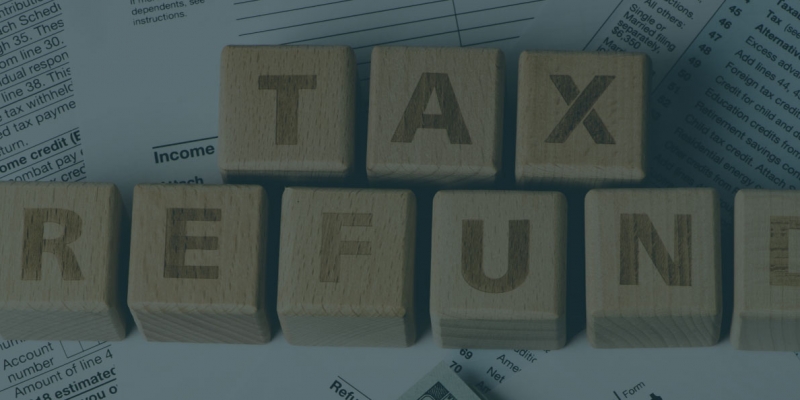Introduction:
As medical professionals, doctors often dedicate their time and resources to providing quality care to their patients. Amid their busy schedules, it’s easy for certain expenses to slip through the cracks come tax season. In this article, we’ll shed light on the top 10 commonly forgotten tax deductions for doctors, helping them optimize their financial strategies and unlock potential tax savings.
Self-Education Expenses:
The pursuit of ongoing education is a hallmark of medical practice. For doctors, investing in self-education to meet CPD requirements can yield tax benefits. Course fees, exam costs, and even travel and accommodation expenses for seminars can potentially be deductible if they enhance existing skills or lead to income growth.
Car Expenses:
Doctors frequently use their cars for professional purposes. Whether it’s commuting between hospitals or making house calls, motor vehicle expenses can add up. By meticulously tracking business-related mileage and maintaining proper records, doctors can claim deductions through the logbook or cents-per-kilometer methods.
Travel Expenses:
Medical professionals often travel for conferences, seminars, or locum work. While travel expenses can be tax deductible, distinguishing between business-related and personal travel is essential. Keeping detailed records, including travel diaries for extended trips, ensures accurate claims.
Medical Indemnity Insurance:
Medical practitioners are required to maintain medical indemnity insurance. Premiums paid for such insurance are not only vital for professional coverage but can also be claimed as a tax deduction, helping doctors offset costs.
Subscriptions and Memberships:
Fees for professional memberships, specialist college memberships, and associations like the AMA can be overlooked. These expenses can be claimed as deductions, ensuring that doctors stay connected with their professional networks.
Uniform, Clothing, and Protective Wear:
The attire of medical professionals often goes beyond fashion. While conventional clothing isn’t deductible, items like medical scrubs, lab coats, and protective gear can be claimed. Doctors should be aware of what attire is deemed deductible under tax regulations.
Phone and Internet Expenses:
In today’s digital age, phones and internet play a crucial role in medical practice. Doctors can claim deductions for these expenses if they are used for work purposes. Accurate record-keeping is key to substantiating these claims.
Costs of Equipment:
The acquisition of essential tools like electronic devices, medical equipment, and software licenses constitutes a significant investment for doctors. Claiming deductions for these items, whether they’re under or over $300, is a way to optimize tax outcomes.
Income Protection Insurance:
Protecting one’s income through insurance is prudent for any professional, including doctors. The premiums paid for income protection insurance can be claimed as deductions, adding a layer of financial security.
Interest on Business Loans:
Doctors engaged in running a medical practice should be aware that the interest paid on business loans can be claimed as a deduction. This applies to loans taken out for purposes like equipment purchases, business expansion, or even certain tax payments.
Conclusion:
As doctors juggle their clinical duties, it’s easy to overlook potential tax deductions that could significantly impact their financial bottom line. By paying attention to these commonly missed deductions and maintaining meticulous records, medical professionals can maximize their tax savings while ensuring their financial health.
Remember, while this article provides general insights, seeking advice from a qualified tax professional is always recommended to ensure compliance with current tax regulations and to tailor strategies to individual circumstances.
Frequently Asked Questions (FAQs) related to the topic:
Q: What are self-education expenses, and how can doctors benefit from claiming them?
A: Self-education expenses encompass costs incurred for courses, exams, conferences, and more. Doctors can claim deductions if these expenses enhance existing skills or lead to income growth in their current employment or business activities.
Q: How can I choose between the logbook and cents-per-kilometer methods for claiming car expenses?
A: The logbook method involves maintaining a detailed logbook of business-related vehicle usage, while the cents-per-kilometer method uses a set rate per kilometer traveled. Choose the method that aligns with your record-keeping habits and best reflects your business-related driving.
Q: What travel expenses can doctors claim?
A: Doctors can claim travel expenses related to income-generating activities, such as airfare, accommodation, meals, and transportation costs for conferences, seminars, and locum work.
Q: Can I claim tax deductions for medical indemnity insurance premiums?
A: Yes, medical indemnity insurance premiums are tax deductible. They are necessary for maintaining professional coverage and can be claimed as a deduction in the year they are paid.
Q: Are all types of clothing and uniforms deductible for doctors?
A: No, only occupation-specific clothing, protective gear, and uniforms directly related to medical practice are deductible. Conventional clothing or attire that could be used outside of work is generally not deductible.
Q: What records should I keep for phone and internet expenses?
A: The ATO requires a four-week representative record of phone and internet usage for deduction purposes. This can include diary entries, electronic records, and bills indicating business-related usage.
Q: Can I claim immediate deductions for equipment purchases in my medical practice?
A: Yes, doctors carrying on a business can claim immediate deductions for equipment purchases under $300 in the year of purchase. For items over $300, depreciation rules apply.
Q: How can income protection insurance benefit doctors?
A: Income protection insurance provides financial security if you’re unable to work due to illness, injury, or trauma. The premiums for such insurance can be claimed as tax deductions.
Q: Can I deduct interest on business loans for my medical practice?
A: Yes, interest paid on business loans can be claimed as a deduction, provided the loans were taken out for business-related purposes like equipment purchases, business expansion, or other eligible expenses.
Q: Are these deductions applicable to all medical professionals, including employed and self-employed doctors?
A: Yes, the deductions mentioned apply to both employed and self-employed medical professionals, with certain variations depending on your employment arrangement and business structure.
Remember, individual circumstances can vary, and seeking advice from a qualified tax professional is advisable to ensure accurate understanding and application of tax regulations in your specific situation.



